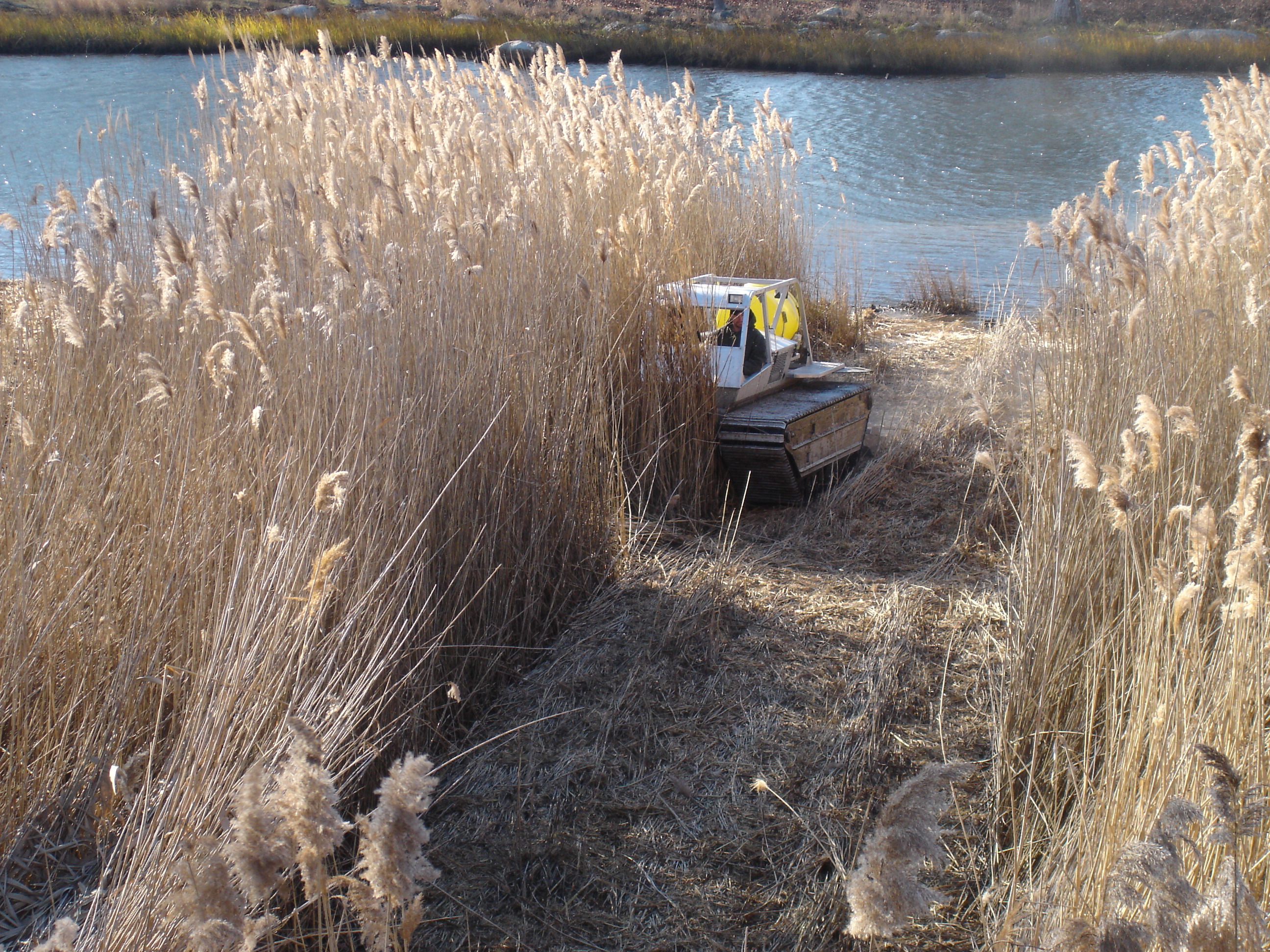Phragmites (Phragmites Australis), also known as Common Reed, is an invasive plant which is well established in many regions of the United States including Connecticut and other Northeastern states. Found in brackish, tidal and non-tidal wetlands this aggressive plant can dominate its environment. Growing to heights from around 8 or 10 feet to even as much as 20 feet, the density of plant colonies crowds out native plants and creates a monoculture habitat unsuitable for many species of birds and animals. Phragmites can also impact water flow characteristics of wetlands.
Phragmites utilizes an underground rhizome system with shoots emerging from nodes. This thick interconnected system offers phragmites an advantage over other plants and makes control and eradication difficult. Unlike plants with individual root systems phragmites cannot simply be pulled to be eliminated from an environment. Cutting shoots usually results in the plant reemerging with denser growth.
The nature of the terrain phragmites inhabits and its characteristic resiliency presents challenges to effective abatement. Successful phragmites reduction programs involve repeated cycles of mowing and herbicide applications with the goal of allowing native flora to reestablish while the phragmites is diminished.
Innovative Mosquito Management, Inc. has many years of experience with phragmites control throughout Connecticut, Rhode Island, New Jersey, New York, Massachusetts and Maine. Using specialized low ground pressure equipment IMM has restored habitats on islands, in salt marshes and in swampy terrain where phragmites is found.
Contact us to learn how we can help with all aspects of your Phragmites control project including planning, permits and implementation.
